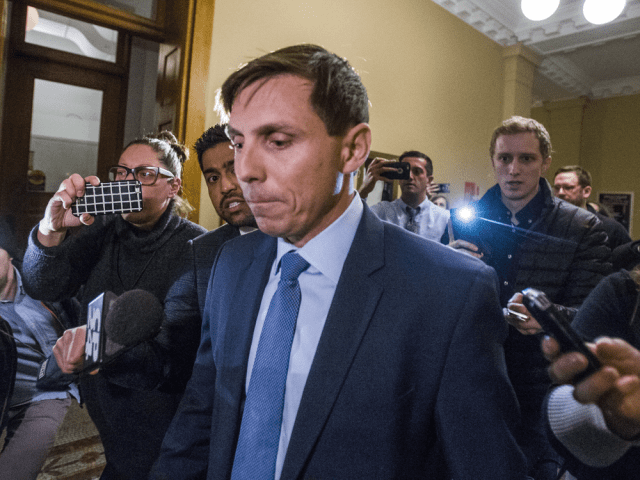Over the past couple of weeks, Question Period has been dominated by the plaintive wails of the Conservatives that demand that the federal government stand up to defend Kinder Morgan's Trans Mountain pipeline against the predations of BC's NDP government. It's not enough that the government has approved the pipeline and declared it to be in the national interest apparently, they must bring the full force of federal power to bear against it, before it suffers the same fate that the aborted Northern Gateway and Energy East pipelines did.
First of all, it bears reminding that BC's actions to date have involved putting out a press release. It shouldn't need to be stated that the federal government can't take BC to court over a press release, and yet here we are. They've stated the intention to hold consultations on bitumen, but there is nothing concrete that the government can actually do anything about. At this point, it's all talk, regardless of the fact that Alberta took the somewhat proactive step to ban imports of BC wine in retaliation. Demands that they do something at this point remains hugely overblown.
Let us also not forget that the narrative around the other two pipeline plans being abandoned are too cute by half. For one, it ignores the fact that the Conservative government was found by the Supreme Court of Canada to have dropped the ball on their duty to consult Indigenous people along Northern Gateway route, and had they made just a little more effort, they may have won the necessary approvals and won that court challenge. But they didn't. With Energy East, the resurrection of the Keystone XL pipeline was the bigger death knell of that project as it was further along, more cost effective for the proponent, and it made far more economic sense for them to shift their contracts to the Keystone XL project than in Energy East. While they may have cited the "uncertainty" of the National Energy Board deciding to look at upstream emissions as part of their evaluation, it didn't change the very clear signals from the government that it was ultimately a cabinet decision (thanks to rule changes pushed through by the previous Conservative government), and that was not one of the criteria by which they would be basing their decision.
As for Trans Mountain, we are at a stage of the project where the federal government involving itself directly would be hugely inappropriate because the NEB is a quasi-judicial body whose rulings have approximately the same weight as that of the Federal Court. If Kinder Morgan felt that the project was being unduly threatened by the provincial or municipal governments in BC, they can apply to the NEB to make an order that will give them the access they need, and they have already successfully done so with some of the roadblocks that Burnaby was attempting to put into place. Having the federal government insert itself into this process before Kinder Morgan makes any further applications would have the same effect as the government trying to bigfoot the courts on a decision that they are supposed to render, ignoring the separation of powers and the whole purpose for why we have these quasi-judicial bodies in the first place.
Add to all of these demands came a bill tabled by Conservative-turned-Independent Alberta Senator Doug Black last week, which would legislatively declare that the Trans Mountain pipeline is in the national interest and that any works related to it are "not frustrated or delayed." But aside from the general useless nature of a bill whose only sole clause is to reiterate something that the government has already declared, one wonders if this doesn't just frustrate the work of the NEB in carrying out their duties as the regulator and creates even more confusion into a situation where a clear delineation of responsibilities already exists. In addition, the fact that the Conservatives in the House of Commons were demanding that the government table a timeline for when the pipeline could begin construction, as though that were a decision that was in their hands they don't control the NEB, nor do they control Kinder Morgan (unless the Conservatives are planning to nationalize that particular company "in the national interest") is all absurd theatre.
At this point, we need to ask ourselves whether these demands, which are entirely performative for the sake of their voters at home, are actually helping the cause, or if they're ultimately hurting it? Why this question matters is because the Prime Minister last week went to the National Observer, an outlet that is not exactly friendly with the government, and laid it out clearly that the approval of the Trans Mountain expansion was part of a bigger whole, a necessary trade-off that allowed Alberta to sign onto the government's national climate framework and get the needed buy-in that they can show the rest of the country that if Alberta is willing to take these steps, hard emissions cap and all, that they can make it work across the board. But if the Conservatives demand that the government use the full weight of their federal powers to push this pipeline through, as inappropriate as some of those measures might be, how can they then turn around and call it unconstitutional for the government to act within its same clear powers to institute a national carbon price? You can't demand that the government use those powers in one circumstance and then turn around and declare them invalid in another, without looking like complete hypocrites. But if they want this pipeline to happen, they might need to concede that the whole package needs to go through along with it, and that may be the tougher pill to swallow. Harming the political trade-off, however, could mean no pipeline in the end, and the demise could very well be the fault of those whose bully tactics blew up in their faces.








